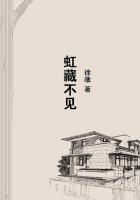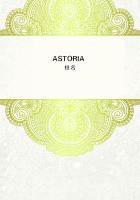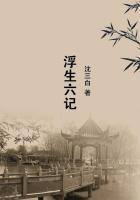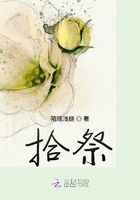BEFORE dropping the curtain on my college days I must relate a little adventure which is amusing as an illustration of my reverend friend Napier's enthusiastic spontaneity. My own share in the farce is a subordinate matter.
During the Christmas party at Holkham I had 'fallen in love,' as the phrase goes, with a young lady whose uncle (she had neither father nor mother) had rented a place in the neighbourhood. At the end of his visit he invited me to shoot there the following week. For what else had I paid him assiduous attention, and listened like an angel to the interminable history of his gout? I went; and before I left, proposed to, and was accepted by, the young lady. I was still at Cambridge, not of age, and had but moderate means.
As for the maiden, 'my face is my fortune' she might have said. The aunt, therefore, very properly pooh-poohed the whole affair, and declined to entertain the possibility of an engagement; the elderly gentleman got a bad attack of gout; and every wire of communication being cut, not an obstacle was wanting to render persistence the sweetest of miseries.
Napier was my confessor, and became as keen to circumvent the 'old she-dragon,' so he called her, as I was. Frequent and long were our consultations, but they generally ended in suggestions and schemes so preposterous, that the only result was an immoderate fit of laughter on both sides. At length it came to this (the proposition was not mine): we were to hire a post chaise and drive to the inn at G-. I was to write a note to the young lady requesting her to meet me at some trysting place. The note was to state that a clergyman would accompany me, who was ready and willing to unite us there and then in holy matrimony; that I would bring the licence in my pocket; that after the marriage we could confer as to ways and means; and that - she could leave the REST to me.
No enterprise was ever more merrily conceived, or more seriously undertaken. (Please to remember that my friend was not so very much older than I; and, in other respects, was quite as juvenile.)
Whatever was to come of it, the drive was worth the venture.
The number of possible and impossible contingencies provided for kept us occupied by the hour. Furnished with a well-filled luncheon basket, we regaled ourselves and fortified our courage; while our hilarity increased as we neared, or imagined that we neared, the climax. Unanimously we repeated Dr. Johnson's exclamation in a post chaise: 'Life has not many things better than this.'
But where were we? Our watches told us that we had been two hours covering a distance of eleven miles.
'Hi! Hullo! Stop!' shouted Napier. In those days post horses were ridden, not driven; and about all we could see of the post boy was what Mistress Tabitha Bramble saw of Humphrey Clinker. 'Where the dickens have we got to now?'
'Don't know, I'm sure, sir,' says the boy; 'never was in these 'ere parts afore.'
'Why,' shouts the vicar, after a survey of the landscape, 'if I can see a church by daylight, that's Blakeney steeple; and we are only three miles from where we started.'
Sure enough it was so. There was nothing for it but to stop at the nearest house, give the horses a rest and a feed, and make a fresh start, - better informed as to our topography.
It was past four on that summer afternoon when we reached our destination. The plan of campaign was cut and dried. I called for writing materials, and indicted my epistle as agreed upon.
'To whom are you telling her to address the answer?' asked my accomplice. 'We're INCOG. you know. It won't do for either of us to be known.'
'Certainly not,' said I. 'What shall it be? White? Black?
Brown? or Green?'
'Try Browne with an E,' said he. 'The E gives an aristocratic flavour. We can't afford to risk our respectability.'
The note sealed, I rang the bell for the landlord, desired him to send it up to the hall and tell the messenger to wait for an answer.
As our host was leaving the room he turned round, with his hand on the door, and said:
'Beggin' your pardon, Mr. Cook, would you and Mr. Napeer please to take dinner here? I've soom beatiful lamb chops, and you could have a ducklin' and some nice young peas to your second course. The post-boy says the 'osses is pretty nigh done up; but by the time - '
'How did you know our names?' asked my companion.
'Law sir! The post-boy, he told me. But, beggin' your pardon, Mr. Napeer, my daughter, she lives in Holkham willage; and I've heard you preach afore now.'
'Let's have the dinner by all means,' said I.
'If the Bishop sequesters my living,' cried Napier, with solemnity, 'I'll summon the landlord for defamation of character. But time's up. You must make for the boat-house, which is on the other side of the park. I'll go with you to the head of the lake.'
We had not gone far, when we heard the sound of an approaching vehicle. What did we see but an open carriage, with two ladies in it, not a hundred yards behind us.
'The aunt! by all that's - !'
What - I never heard; for, before the sentence was completed, the speaker's long legs were scampering out of sight in the direction of a clump of trees, I following as hard as I could go.
As the carriage drove past, my Friar Lawrence was lying in a ditch, while I was behind an oak. We were near enough to discern the niece, and consequently we feared to be recognised. The situation was neither dignified nor romantic. My friend was sanguine, though big ardour was slightly damped by the ditch water. I doubted the expediency of trying the boat-house, but he urged the risk of her disappointment, which made the attempt imperative.
The padre returned to the inn to dry himself, and, in due course, I rejoined him. He met me with the answer to my note. 'The boat-house,' it declared, 'was out of the question. But so, of course, was the POSSIBILITY of CHANGE.
We must put our trust in PROVIDENCE. Time could make NO difference in OUR case, whatever it might do with OTHERS.














